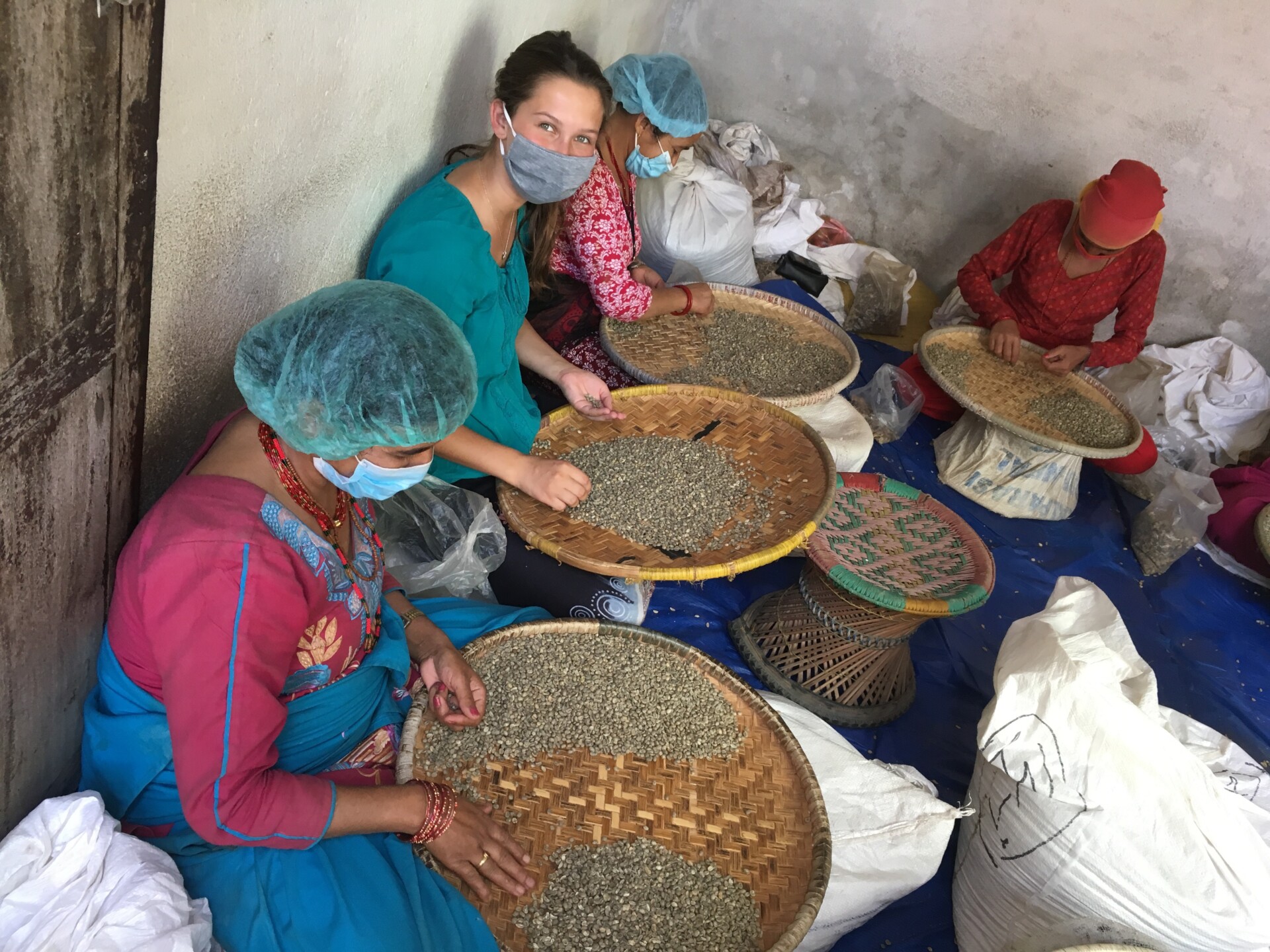
So much I never knew about Coffee
I find myself living and working in Nepal fully immersed in the coffee industry; staying at a homestay of the coffee factory manager, with his wife who hand sorts coffee beans, their son a barista, and working for their cooperative. Despite coffee being such a popular beverage in Canada, there were so many things that I was unaware of about coffee production until I arrived. Like how coffee plants take 4 years to mature before producing cherries and therefore profit for the farmer. Like how prevalent white stem borer disease is, and if infected, the coffee plant must be chopped down. How the effects of climate change are seriously threatening the viability of the coffee industry in Nepal. Most shockingly, I didn’t make the connection that “hand sorted” literally meant that women sit in front of heaps of coffee beans and systematically hand sort through them one by one to ensure the high quality of the final product.

Last week, I tagged along to work with my homestay mother to try my hand at sorting the coffee. Myself and 10 other women sat on the floor cross legged, knee to knee, with large round wicker trays on which we would separate the good from the bad beans. Old coffee sacs were rolled up and wedged behind our backs and used as seat cushions in attempt to make the cement room a little more comfortable. One by one, I slid the beans across the tray, removing them if they were cracked or miscoloured. While we worked, the women talked. And talked. And laughed. Sometimes they laughed so loudly that I would sort of jump, and they would giggle at me, jolted out of the work that I was so intensely concentrating on (yet still so much slower at). Muffled by the masks that we were wearing, I had a hard time deciphering their quick Nepali banter besides a few words here and there. I was frustrated with my lack of ability to communicate with them and therefore missing out on the social aspect of the work, and I plan on improving my Nepali skills so that I can contribute to the conversation in March when the hand sorting season starts up again. Despite a lack of verbal communication and the masks hiding much of what their faces were conveying as they spoke, I read so much from their eyes. They curiously and encouragingly watched me work (and try to stretch from time to time), and their eyes generally had a twinkle, happy for the good company and happy to welcome me into their daily routine. Walking home with a stiff neck and cramped legs, I had a totally new appreciation for coffee and coffee producers. Because of the Fairtrade prices that this coffee is sold for, these women now earn a living wage for their efforts, and are able to support their families and improve their livelihoods. If I do nothing else in these 8 months, I hope that I am able to spread awareness and appreciation so that the concept of Fairtrade becomes the only logical choice to you in Canada when purchasing such labour-intensive products like coffee.

